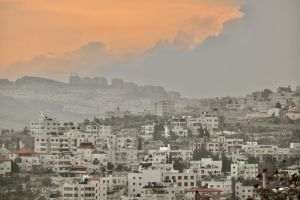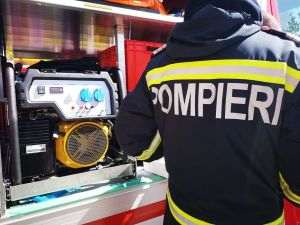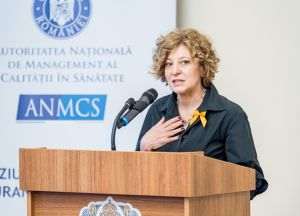After Romania was in a state of emergency for two months, Klaus Iohannis is following the European trend and starting today decides that we could go to the state of alert, in a first step towards returning to normal.
With or without masks, with or without affidavits, we are officially in a state of alert. At least that is what president Klaus Iohannis and PM Ludovic Orban are saying. The latter is also president of the National Emergency Situations Committee (CNSU), a structure he is in charge of together with internal affairs minister Marcel Vela, Public Works Minister - Ion Ştefan and state secretary Raed Arafat, head of the Emergency Situations Department.
President Klaus Iohannis said: "Today (ed. note: May 14th) the CNSU is announcing the state of alert and will announce all the mandatory regulations concerning the measures that will apply in the coming period. The days that follow will not be without rules and restrictions. We have a legal framework in effect and based on it, over the next three days we will make the decisions to follow all the necessary rules to keep citizens safe. Social distancing, working from home where possible, abiding by cleanliness norms, wearing the masks are essential to allow us to keep the epidemic under control from now on. Should the situation worsen following the easing of restrictions, and the number of cases increased considerably putting hospitalization capacity at risk, I won't hesitate to declare a state of emergency again".
At the end of yesterday's (May 14th) government meeting, Interior Minister Marcel Vela, declared that the notion of state of alert has been redefined and that, through a new emergency ordinance, the mechanism for declaring, prolonging and ending that state has been regulated, and criteria for doing so have been specified: area size, density and infrastructure.
In other words, yesterday (May 13th) the Orban government changed Emergency Government Ordinance 21/2004, through an emergency ordinance, even though the legislative act of 2004 had just been changed by the Parliament, in just two days, through the vote of the majority of senators and deputies, which also included the PNL MPs. It needs to be mentioned that, in the case of the ordinance passed by the government, it will come into effect upon its publication in the Official Gazette, while the law that has passed the Parliament would only come into effect on May 18th. Because of that, we may see a new constitutional conflict between the Parliament and the Government, which will have to be settled by the Romanian Constitutional Court. Especially since the Government claims that even though there will no longer be restrictions on traveling within the city, we will need affidavits for traveling to other cities, while the Parliament claims that such a measure needs its approval first, according to a recent decision by the Romanian Constitutional Court.
This legislative discrepancy has also been noted by president Klaus Iohannis who said: "Over the course of three decades, no cohesive legislation has been drafted in Romania, and the government is being constantly forced to adapt to the lack of legislation pertaining to the state of emergency. Legislation needs to be consistent, to allow the quick intervention of the government, regardless of the Government's political orientation, in such situations of emergency or to fight epidemics".
Based on the new legislation passed, yesterday (May 13th) was held the first meeting of the National Emergency Situations Committee chaired by PM Ludovic Orban.
Prior to the meeting of the first CNSU meeting under the new formula, the government passed the extension of the furlough until June 1st, with the option to keep that measure in place in areas that will continue to be restricted. When it comes to individual employees, liberal professions, Individual Certified Professionals and other categories, the government is preparing the granting of a financial aid after June 1st, which would include the partial covering of the wage payments by the state budget.
Throughout the state of alert, the government has made it mandatory for companies and institutions with more than 50 employees to implement tailored work schedules, to avoid crowding. Healthcare will be allocated additional funding for the priority settlement of medical leaves for quarantined or infected individuals. Outpatient consultations and those performed by the general practitioners may still be performed remotely and their settlement may be done without using the national healthcare card.
Associations and foundations that acquire equipment, drugs, protection gear will be exempt from VAT payment until September 1st, if those goods are used to fight Covid-19.
In the cultural field, the government has decided that tickets may be converted into vouchers for other shows, vouchers that could be used next year, after which, in case they haven't been used, buyers will be able to get back their equivalent value.
In the economic field, the Government extended, until June 15th, the deadline for the issuing of Emergency Situation Certificates for companies, taking into account the situation faced by companies in May. Also, until June 15, borrowers will have the option to postpone the payment of loan installments.
Because of the current situation, the Government has decided that operators may not disconnect users from public utilities and service networks during the state of alert.
• The situation of outdoor venues, uncertain
That was it. Those were the regulations of the government, at the end of the state of emergency, concerning the state of alert which we are in starting May 15th, according to Klaus Iohannis, PM Ludovic Orban and the National Committee for Emergency Situations (CNSU). The remaining measures would be presented in more detail by the CNSU through the decisions made in the coming days, or maybe to be announced on Monday, May 18, 2020, which is when the law concerning the state of alert will come into effect and the Government or the CNSU can institute it, according to the opinion expressed by the parliamentary majority built around the PSD and by the representatives of the UDMR, PMP and the USR. But even then, the Parliament has five days to validate a CNSU decision, and implicitly of the government and even to change it when it comes to restricting some of citizens' rights and freedoms.
According to the legislative act passed by the Parliament, in order to reduce risks during the state of alert, local or central authorities may take the following steps: restricting or prohibiting the organizing and holding of rallies, demonstrations, processions, concerts or other types of gatherings, in open areas, as well as other cultural, scientific, artistic, religious, athletic or entertainment events, indoors; limiting or banning the circulation of individuals and vehicles in places, and, if applicable, within the established hour intervals; restrictions on exiting the assigned areas and, as the case may be, within the set hourly intervals or the enforcement of quarantine over some buildings, localities or geographical areas; the restriction or banning of transport operators from providing road, railway, sea, river, air or subway transportation via the banned routes or during the restricted hour intervals; the temporary closing of some border crossing points; the limiting or suspension over a limited period of the activity of some institutions or economic entities; the participation of citizens and economic operators in some activities intended to benefit local communities.
Throughout the entire state of alert consumption of food and alcoholic beverages may be suspended in the shared meal-serving areas of restaurants, hotels, motels, hostels, coffee shops or other public venues, both indoors, as well as on their outdoors sections. There are also exceptions such as allowing the preparation of food and the sale of food and alcoholic beverages as long as they are not sold for on-the-spot consumption, and allowing outdoor eateries that abide by the sanitary measures to operate. In other words, standalone outdoor eateries may reopen as long as they follow the protection and distancing rules, but those that are attached to indoor restaurants or to hotels and such are not allowed to service customers for now, should the CNSU decide so.
• Malls with a surface of less than 15000 sqm remain open
Also during the state of alert, the authorities, with the approval of the CNSU, can suspend the retail sales of products and services in commercial centers where several businesses operate. The measure will not apply to commercial centers with a surface below 15000 square meters, with individual stores with less than 500 square meters each.
In major commercial centers - with a surface of 15000 square meters or more -, the following activities are allowed during the state of alert: the sale of electronic and household appliances, only if the economic operators that ensure their delivery to the buyers' office/home; activities conducted by economic operators within the commercial center that have direct access from the outside and that have no connection to the rest of the complex; the operation of food shops, drugstores, dentists, clothes cleaners, and personal care centers, as well as the sale of optical products and services.
Everyone working in the aforementioned activities will have the obligation to constantly wear protective masks that will be replaced every four hours at the most, and companies will be required to provide masks for them as well as disinfectants at the door. Customers are required to wear protective masks and abide by social distancing rules at the cashier's desk.
Also, during the state of alert, through an order issued jointly by the healthcare and internal affairs minister, the following obligations may be instituted: the requirement to wear masks in closed public spaces, commercial spaces, public transportation and in the workplace; the requirement for institutions and public authorities, companies and professionals to ensure epidemiological triage at the access points and mandatory hand sanitization, both for their employees and for the public. For their own staff, the epidemiological triage will consist of taking the temperature through non-contact thermometers, and for visitors triage will be done by temperature measurement.
Throughout the state of alert, prices for medical and protection gear may be capped.
When it comes to public transportation, with the exception of aircraft, every other means of transportation for people will have to comply with the minimum distancing rules. Protective gear will be mandatory for every traveler, including inside aircraft.
Preventive measures have also been imposed when it comes to Romanian citizens coming back from abroad. They will no longer be required to enter quarantine or isolation, if they present a medical certificate that certifies that they do not have Covid-19. The certificate must have been released at least 48 hours prior to their entry to Romania and will have to be presented to the border control agents. The document in question will need to be translated in Romanian.
• State of alert: customized work schedule, strikes are forbidden
With the employees' consent, employers may decide the switch to remote work or working from home, the modification of their job or of the job description. Companies and institutions with more than 50 employees can set customized work schedules, without the employees' agreement, to allow a one hour gap between employees at the beginning and the end of the work schedule, over a three hour period.
Also, during the state of alert, strikes are banned in the national energy system, in the operative units of the nuclear sector, in entities that operate continuously, in healthcare and social welfare units, in the national state-owned radio and television, in the railroad transportation sector, in public transportation and waste disposal, as well as those that supply the population with natural gas, electricity, heating and running water.
Also allowed to resume their operation will be cultural institutions and professional athletic clubs. Museums, libraries, bookstores, cinemas, movie and audiovisual production studios, show or concert venues, cultural centers or offices and other cultural institutions, as well as open-air cultural events and public and private festivals will be allowed to function based on regulations which sanitary protection measures set through a joint order of the ministers of culture and healthcare, with the approval of the CNSU.
During the state of alert, athletic boot camps, training and athletic competitions organized in Romania, as well as access to athletic bases or areas where athletic activities take place will be carried out according to the terms set through joint orders issued by the ministers of youth and sports and of the minister of healthcare, based on the decision of the CNSSU. In the case of amateur athletes, local authorities have the obligation to ensure the citizens' access to practice sports in open-air areas with the agreement of the CNSSU in parks and on the athletic tracks of the institutions under their management.
• The faithful may attend religious services, under certain conditions
Also, during the state of alert, religious cults are allowed to exercise their activity freely, if they comply with the established sanitary protection rules, at the proposal of the CNSSU and with a approval of the Religion state secretary, through a joint order of the healthcare and internal affairs ministers. Rules will include measures concerning access to places of worship, the minimum safety distance and the obligation to follow protective measures.
Regarding sanctions that will be applied for non-compliance with the restrictions and obligations imposed by the authorities, the civil fines vary from 500 lei to 15,000 lei, with half the fine payable within 15 days. Contraventions and fines have been described in detail to prevent the repeat of the situation with the fines during the state of emergency, which were declared unconstitutional because they were too broad, without being defined and individualized for each particular situation.
In case of violation of home isolation restrictions, offenders will pay fines between 1000 lei and 5000 lei, and organizers of rallies, demonstrations, processions, concerts or other types of meetings, in open-air areas, or meetings of cultural or scientific activities, artistic, religious, sports or entertainment, indoors, during the state of alert and in violation of the restrictions, will be fined between 3000 lei and 15000 lei. For persons participating in such events, fines will range between 500 lei and 2500 lei.
Thus, for example, the non-observance by individuals of individual measures for the protection of life and for the limiting the health risks, can incur a fine between 500 lei and 2500 lei. In case of non-compliance with home isolation, offenders will pay a fine between 1000 lei and 5000 lei, and the organizers of rallies, demonstrations, processions, concerts or other types of meetings, in open spaces, or meetings of cultural or scientific activities, artistic, religious, sports or entertainment, indoors, on alert and without compliance with the prohibitions, will be fined with amounts between 3000 lei and 15000 lei. For persons participating in such events, the fine is between 500 lei and 2500 lei.
Fines for the legal entities that do not follow the restrictions have also been set. In the case of transport operators that violate the measures decided by the authorities, the fines may range between 3000 and 15000 lei. Non-compliance by the leaders of the institutions with the regulations for conducting business during the state of alert will result in a civil fine of 1000 to 5000 lei. Those who refuse to temporarily suspend their operation, even though the authorities may require them to do so, will be fined 2000 lei to 10000 lei.
















































